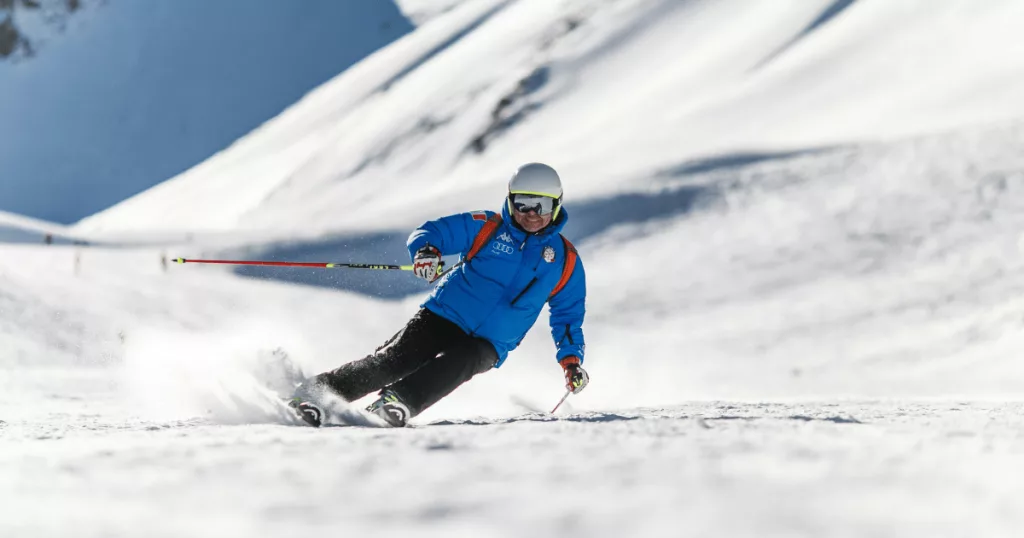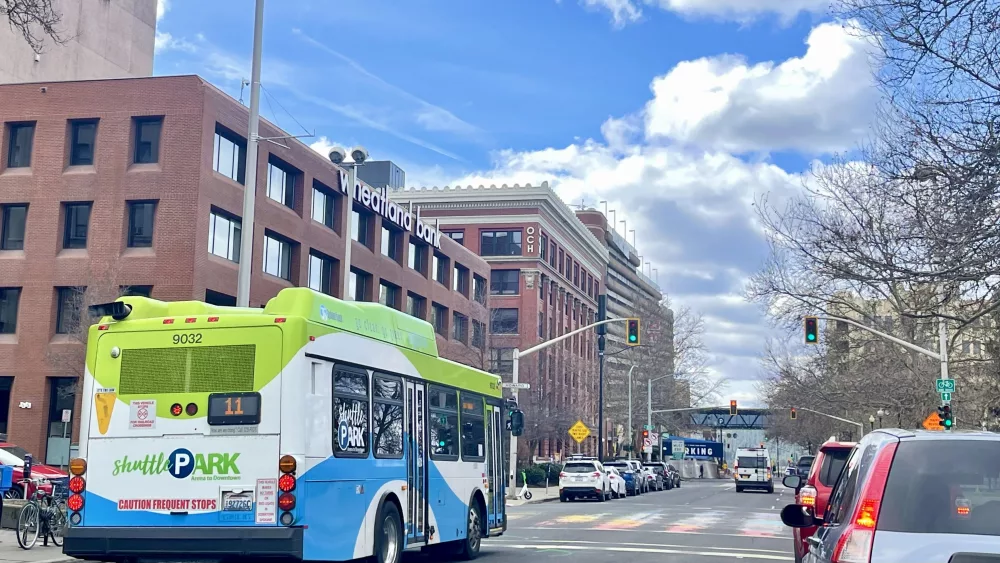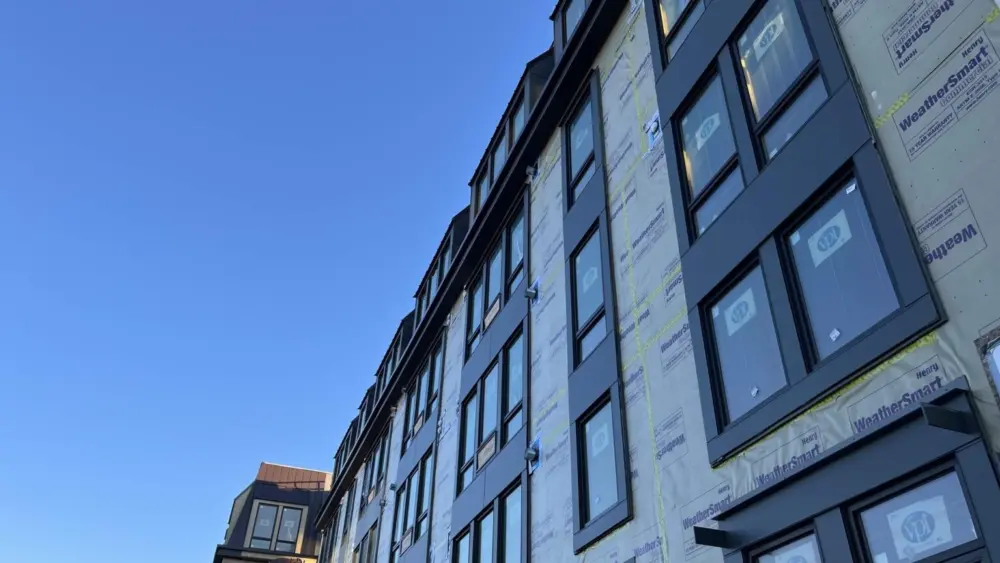BOISE, ID – The Idaho Supreme Court on Wednesday unanimously overturned a controversial earlier decision that had sent alarm through the ski industry in Idaho and nationwide, holding instead that a lower court was right to dismiss a lawsuit from the widow of a skier who died after crashing into a snowmaking tower gun at Sun Valley.
However, the court, with just one justice dissenting, upheld its earlier ruling that departed from decades of precedent in Idaho in how the state’s Ski Area Liability Law should be interpreted with regard to the legal “standard of care.” That potentially opens the door to far more lawsuits over ski injuries in Idaho, rather than reducing ski area liability, as lawmakers who originally sponsored the 1979 law said they intended.
Justice Cynthia Meyer, in her dissent, wrote that the law is clear as written. “Whether it is wise or socially unsound is not for us to decide. But that is the framework the legislature enacted,” she wrote. She added, quoting an earlier Idaho Supreme Court case, “The wisdom, justice, policy, or expediency of a statute are questions for the legislature alone.”
Rep. Bruce Skaug, R-Nampa, an attorney and chairman of the House Judiciary Committee, declined to take up a 2024 bill from Rep. Barbara Ehardt, R-Idaho Falls, to amend the law after the initial decision, saying he preferred to wait until the court’s processes were completed.
“Let the judiciary make the decision, and then we act as necessary, if the law should be changed,” he said in February.
On Wednesday, he told the Idaho Capital Sun, “Now’s the time for our committee to at least look at possible changes, so that the law is more clear, as to what it is intended — so that it’s easier for the courts and litigants to interpret.”
Idaho’s 2025 legislative session adjourned on April 4; unless they hold a special session, lawmakers are next set to convene in January of 2026.
“Obviously we’re pleased with the Supreme Court’s decision to uphold summary judgment,” said Brad Wilson, general manager of Bogus Basin and former president of the Idaho Ski Areas Association. “ … We won this particular piece of it, and so we’re pleased with that. But I don’t know what the implications of the rest of it is.”
Wilson said he planned to meet with attorneys to further evaluate the new ruling.
Milus v. Sun Valley Co. case stems from 2019 skiing accident
Justice Colleen Zahn, the author of the original 2023 decision, wrote Wednesday’s decision, and stuck with her earlier decision on several key points about the interpretation of the law. But she reversed course on a major issue: Whether the section in the law that places all risk for collisions with clearly visible, marked snowmaking equipment on the skier barred the lawsuit in the first place. The skier was the late Dr. Stewart Milus of Boise.
“We hold that Milus’ claims are barred because the record establishes that Snow Gun 16 was plainly marked,” Zahn wrote, “… and that Mr. Milus assumed the risk of injury caused by that equipment.”
The case, Milus v. Sun Valley Co., involves a November 2019 accident in which Milus hit a bright yellow-padded tower snow gun in the middle of Lower River Run at the resort in 2019, and died from his injuries. His widow, Laura Milus, sued the ski resort for wrongful death.
According to court records, Milus was skiing with “poor control” on the moderately crowded groomed run on that clear Saturday afternoon. He skied across the backs of another skier’s skis and yelled, then fell and crashed head-first into the tower, one of a row of such towers that stretches down the run.
The district court dismissed the lawsuit on summary judgment, based on Idaho’s 1979 Ski Area Liability Act. The widow appealed to the Idaho Supreme Court, which in December of 2023 overturned the lower court’s decision, offered an entirely new interpretation of the decades-old law, and said a jury should weigh whether the ski area was at least partially to blame, regardless of the skier’s actions.
Sun Valley Resort sought reconsideration of the court’s decision, which the justices granted, hearing additional arguments from both sides in February.
Idaho Supreme Court’s 2023 ruling could force some ski areas out of business, operators say
The December 2023 decision from Idaho’s highest court caused great consternation for Idaho’s 19 ski areas, which range from giant Sun Valley to tiny, one-chairlift mom-and-pop ski hills. If the state law doesn’t afford the resorts the liability protections it’s long been thought to provide, they said they expect to see a big increase in lawsuits, along with sharply increasing liability insurance costs. That could drive up the cost of skiing statewide, and force small resorts out of business if they can’t afford the increased costs.
That’s what happened in Vermont, after an infamous Vermont Supreme Court decision in 1978. That ruling, Sunday v. Stratton Corp., prompted most of the 37 U.S. states that have ski areas to pass ski area liability laws, many of them similar to Idaho’s. Idaho’s law has repeatedly been upheld in court since it first passed in 1979; state lawmakers affirmed their intent when they last approved amendments to the law in 2014.
Idaho’s law says skiers take on the liability for the inherent risks of the sport, including colliding with trees, bare spots, lift towers, clearly visible snowmaking or snowgrooming equipment and the like. It holds ski areas liable for operation of lifts, including maintaining them to national standards, along with a list of nine specific duties such as clearly marking the level of difficulty for designated trails.
Skiers are liable if they don’t comply with their own enumerated duties, including skiing in control and within their ability, heeding all posted warnings, and sticking to designated runs.
Idaho’s law says ski areas can’t be held to “any standard of care” for actions designed to lessen the inherent risks of skiing, meaning they can’t be sued for how well they accomplish them. A long line of decisions from the Idaho Supreme Court and federal courts has held that that applies to all nine of the enumerated duties of ski areas.
There were three points on which the high court’s initial 2023 ruling appeared to depart from the long line of precedent in Idaho, and from the lower court’s ruling:
- It applied an “ordinarily prudent person standard of care” for judging how well ski areas carry out their nine enumerated duties under the law, rather than concluding that the law eliminated any standard of care for those duties. That’s the standard that would be applied if there were no ski area liability law.
- It ruled that it should be up to a jury to decide how well Sun Valley carried out two of those duties, regarding what constitutes a “warning implement” on snowmaking equipment and whether the resort had adequately posted notice that snowmaking was “in progress” when snowmaking equipment was in place, but no snow was being made. The justices on Wednesday found Milus hadn’t provided sufficient evidence the ski area failed to meet its duties on those points.
- It held that the skier’s compliance with his own enumerated duties, including controlling speed and course and heeding all posted warnings, can’t be considered until a jury decides if the resort was negligent with regard to warning implements and signs — and can’t be considered at all if the jury finds the resort failed on those points. That’s the key point that was overturned, leading to dismissal of the lawsuit.
Laura Milus attended the arguments before the court on Feb. 14, as did the general managers of three Idaho ski areas and a host of others.
Milus said after the February arguments that she thought it was “reckless” for Sun Valley to have snow guns “right in the middle of a beginner run, where somebody is going to go out of control.” She also said then that even if she didn’t win, she hoped the case would bring attention to that issue.
In response to the court’s December 2023 decision, in February of 2024, at the urging of the ski industry, Ehardt introduced House Bill 516, adding a clear statement to the existing law that “no standard of care” applies to the enumerated duties of ski areas.
That would put the interpretation of Idaho’s law back to where it has been since the law was first enacted, before the court’s December 2023 ruling. The bill never got a hearing.
This story first appeared on Idaho Capital Sun.





